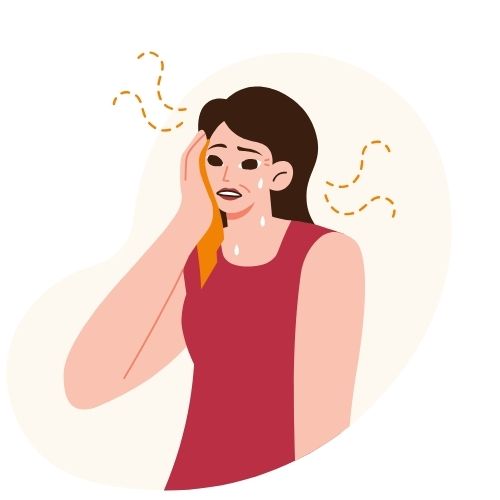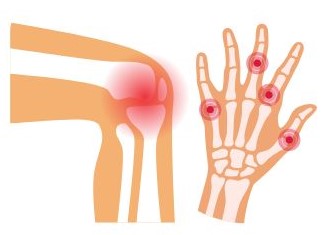Menopause is a natural biological process that marks the end of a woman’s reproductive years. It is a significant phase of life characterized by various physical, emotional, and psychological changes. Understanding menopause is essential for women to navigate this transition with knowledge and support.
What is Menopause?
Menopause is defined as the time in a woman’s life when her menstrual periods cease permanently, marking the end of her reproductive capacity. It is officially diagnosed after 12 consecutive months without a menstrual period. The average age of onset is around 51, but it can occur anywhere from the late 40s to the early 60s.
Stages of Menopause
- Perimenopause: This is the transitional phase leading up to menopause, typically beginning in a woman’s 40s. Hormone levels fluctuate, and women may experience irregular periods and various symptoms.
- Menopause: This phase is marked by the cessation of menstruation. It is diagnosed when a woman has gone 12 months without a period.
- Postmenopause: This phase follows menopause and lasts for the rest of a woman’s life. Many symptoms may ease, but long-term health risks, such as osteoporosis and heart disease, may increase.
Causes of Menopause
Menopause is primarily a natural biological process resulting from a decline in ovarian function and hormone production. However, various factors can influence the timing and onset of menopause. Here’s a deeper look into the causes:
1. Age
Natural Aging Process:
- Menopause typically occurs between the ages of 45 and 55, with the average age being around 51. As women age, the ovaries gradually produce less estrogen and progesterone, leading to the eventual cessation of menstruation.
2. Genetics
Family History:
- The timing of menopause can be influenced by genetic factors. If a woman’s mother or sisters experienced early menopause, she may be more likely to experience it at a similar age. Research indicates that genetic predisposition can account for a significant portion of the variability in menopause timing.
3. Hormonal Changes
Decline in Ovarian Function:
- Menopause is marked by the ovaries gradually becoming less responsive to hormones from the pituitary gland, leading to decreased production of estrogen and progesterone. This hormonal imbalance causes the cessation of ovulation and menstruation.
4. Health Conditions
Medical Conditions:
- Certain health conditions can lead to early menopause or affect the timing of menopause:
- Autoimmune Diseases: Conditions such as lupus or rheumatoid arthritis can cause the immune system to attack the ovaries, resulting in premature ovarian failure.
- Thyroid Disorders: Hyperthyroidism or hypothyroidism can impact hormone levels and potentially influence menopause timing.
- Diabetes: Some studies suggest a link between diabetes and early menopause, possibly due to hormonal imbalances.
5. Surgical Procedures
Oophorectomy:
- The surgical removal of one or both ovaries (oophorectomy) results in immediate menopause due to the abrupt loss of estrogen production, regardless of age. This is sometimes done as a preventive measure in women with a high risk of ovarian cancer.
Hysterectomy:
- A hysterectomy (removal of the uterus) may or may not include the removal of the ovaries. If the ovaries are removed, menopause will occur immediately. If the ovaries are left intact, menopause may still occur later, as the natural aging process continues.
6. Chemotherapy and Radiation
Cancer Treatments:
- Treatments for cancer, such as chemotherapy or radiation therapy, can induce menopause. These treatments can damage the ovaries and reduce hormone production, leading to premature menopause. The extent of the impact often depends on the type of treatment and the age of the woman at the time.
7. Lifestyle Factors
Smoking:
- Studies have shown that smoking can lead to earlier menopause, possibly due to its effects on hormone levels and blood flow to the ovaries.
Body Weight:
- Women with very low body weight or eating disorders may experience earlier menopause. Conversely, obesity can also affect hormonal balance and may lead to irregular menstrual cycles.
8. Environmental Factors
Chemical Exposure:
- Some research suggests that exposure to certain environmental toxins and endocrine disruptors may influence hormonal balance and contribute to earlier onset of menopause. Chemicals found in plastics, pesticides, and industrial pollutants can interfere with hormone function.
Menopause is a complex process influenced by a variety of factors, including age, genetics, hormonal changes, health conditions, surgical procedures, cancer treatments, lifestyle choices, and environmental exposures. Understanding these causes can help women anticipate and manage the transition into menopause effectively. If you have concerns about menopause or its timing, consulting a healthcare provider can provide personalized insights and guidance.
Symptoms of Menopause
Menopause can bring a wide range of physical, emotional, and psychological symptoms. While some women may experience only mild discomfort, others may face more significant challenges. Understanding these symptoms can help women prepare for and manage this transition more effectively.
1. Physical Symptoms
Hot Flashes
- Description: Sudden feelings of intense heat, often accompanied by sweating, flushing, and sometimes a rapid heartbeat. They can last from a few seconds to several minutes.
- Frequency: Hot flashes can occur several times a day or night and may persist for months or years after menopause.
Night Sweats
- Description: Episodes of excessive sweating during sleep, which can lead to waking up drenched and disrupt sleep.
- Impact: Night sweats can cause fatigue and irritability due to disturbed sleep patterns.
Sleep Disturbances
- Description: Difficulty falling asleep, staying asleep, or experiencing restful sleep.
- Causes: Sleep issues can be related to night sweats, hormonal fluctuations, or anxiety.
Vaginal Changes
- Description: Thinning and drying of the vaginal tissues (vaginal atrophy) can lead to discomfort during intercourse, increased risk of infections, and changes in libido.
- Symptoms: Women may experience itching, burning, or a decrease in lubrication.
Urinary Changes
- Description: Increased frequency of urination, urgency, and urinary incontinence. Some women may also experience recurrent urinary tract infections (UTIs).
- Causes: Hormonal changes can weaken pelvic floor muscles and affect urinary function.
Weight Gain
- Description: Many women experience weight gain, particularly around the abdomen, due to hormonal changes and a decrease in metabolism.
- Impact: This can lead to self-esteem issues and increase the risk of other health problems, such as diabetes and heart disease.
Joint and Muscle Pain
- Description: Some women report increased stiffness, joint pain, or muscle aches during menopause.
- Causes: Hormonal changes may affect connective tissue and muscle function.
2. Emotional and Psychological Symptoms
Mood Swings
- Description: Fluctuations in mood, including irritability, sadness, or anxiety.
- Impact: These changes can be distressing and may affect relationships and daily functioning.
Anxiety and Depression
- Description: Increased feelings of anxiety, restlessness, or depression may arise, sometimes exacerbated by the physical symptoms of menopause.
- Causes: Hormonal changes, sleep disturbances, and life stressors can contribute to these feelings.
Cognitive Changes
- Description: Difficulty concentrating, memory lapses, or “brain fog” are common complaints.
- Impact: These cognitive changes can lead to frustration and anxiety.
3. Long-term Health Risks
Bone Density Loss
- Description: Estrogen plays a critical role in maintaining bone density. After menopause, women may experience rapid bone loss, increasing the risk of osteoporosis and fractures.
- Impact: This can lead to significant long-term health challenges.
Cardiovascular Health
- Description: The risk of heart disease increases post-menopause due to changes in cholesterol levels and blood pressure.
- Impact: Women are encouraged to monitor heart health and adopt lifestyle changes to mitigate this risk.
4. Other Symptoms
Hair Changes
- Description: Some women may notice thinning hair or changes in hair texture due to hormonal fluctuations.
- Impact: This can affect self-esteem and body image.
Skin Changes
- Description: Skin may become drier and less elastic, leading to wrinkles and sagging.
- Impact: Changes in skin can affect self-perception and confidence.
Menopause brings a diverse array of symptoms that can vary significantly from one woman to another. While some may experience only mild symptoms, others may find the transition challenging. Understanding these symptoms can empower women to seek appropriate support, whether through medical treatment, lifestyle changes, or counseling. Regular check-ups with a healthcare provider can also help manage symptoms and monitor long-term health risks associated with menopause.
Diagnosis of Menopause
Diagnosing menopause involves a combination of assessing symptoms, medical history, and sometimes conducting laboratory tests. Here’s a detailed overview of the diagnostic process:
1. Clinical Evaluation
Medical History
- Symptom Assessment: The healthcare provider will discuss the patient’s menstrual history, including changes in cycle regularity, frequency, and flow. Symptoms such as hot flashes, night sweats, mood swings, and vaginal dryness will be evaluated.
- Family History: Understanding family patterns regarding menopause can help predict timing and potential complications.
- Medication and Health Conditions: The provider will inquire about current medications and any health conditions that might influence hormonal balance or menopause onset.
Physical Examination
- A physical exam may include checking for signs of hormonal changes, such as changes in skin, hair, or weight. A pelvic exam may also be conducted to assess vaginal and reproductive health.
2. Laboratory Tests
While menopause is primarily diagnosed based on symptoms and medical history, blood tests can provide additional information, especially in cases where the diagnosis is unclear.
Hormone Level Testing
- Follicle-Stimulating Hormone (FSH): FSH levels typically increase during menopause due to decreased ovarian function. A high FSH level (often above 30 mIU/mL) can indicate that menopause is approaching or has occurred.
- Estrogen Levels: Estrogen levels (specifically estradiol) usually decrease during menopause. Low levels may support a diagnosis of menopause, but they can fluctuate, so this test alone is not definitive.
- Thyroid Function Tests: Thyroid disorders can mimic or contribute to menopausal symptoms. Assessing thyroid hormones (TSH, T3, and T4) can help rule out other causes of symptoms.
3. Additional Diagnostic Procedures
Ultrasound
- In some cases, a pelvic ultrasound may be used to assess the ovaries and uterus. This can help rule out other conditions, such as fibroids or ovarian cysts, that may cause similar symptoms.
4. Timing and Considerations
- Age Considerations: In women over 45 experiencing typical menopausal symptoms, a diagnosis can often be made without extensive testing. For women under 45, additional testing may be warranted to assess hormonal levels and rule out other conditions.
- Symptom Duration: The diagnosis may also consider how long symptoms have been present. If a woman has experienced changes in her menstrual cycle and associated symptoms for 12 consecutive months, menopause is confirmed.
5. Differential Diagnosis
Healthcare providers may also consider other conditions that can cause similar symptoms, including:
- Perimenopause: The transitional phase leading to menopause can have overlapping symptoms. The distinction is based on menstrual irregularities and hormone levels.
- Thyroid Disorders: Hypothyroidism or hyperthyroidism can cause symptoms like weight changes, mood swings, and menstrual irregularities.
- Depression or Anxiety Disorders: Emotional symptoms may be mistaken for menopausal symptoms, necessitating a thorough psychological assessment.
- Other Medical Conditions: Conditions like diabetes, adrenal gland disorders, or autoimmune diseases may also mimic menopausal symptoms.
Diagnosing menopause primarily relies on a woman’s symptoms and medical history, with additional laboratory tests helping confirm the diagnosis if necessary. Understanding this process can empower women to seek appropriate care and address any concerns they may have during this significant life transition. Regular consultations with healthcare providers are crucial for managing symptoms and monitoring overall health during menopause and beyond.
Treatment Options of Menopause
While menopause is a natural process, many women seek treatment to alleviate symptoms and manage health risks. Treatment options include:
1. Hormone Replacement Therapy (HRT)
Description: HRT involves the administration of estrogen, sometimes combined with progesterone, to alleviate symptoms of menopause.
Benefits: HRT can effectively relieve hot flashes, night sweats, and vaginal dryness. It may also help prevent bone loss.
Risks: HRT is not suitable for everyone and may increase the risk of certain health issues, such as blood clots, stroke, and certain cancers. It’s essential to discuss personal risk factors with a healthcare provider.
2. Non-Hormonal Medications
For women who cannot or prefer not to use HRT, non-hormonal medications may help manage symptoms:
- Antidepressants: Certain types can help reduce hot flashes and improve mood.
- Gabapentin: Often used to treat nerve pain, it can also help reduce hot flashes.
- Clonidine: A medication for high blood pressure that can reduce hot flashes.
3. Lifestyle Modifications
Lifestyle changes can play a crucial role in alleviating menopause symptoms and improving overall health during this transition. Here are detailed strategies that can help women manage menopause more effectively:
* Diet and Nutrition
Balanced Diet:
- Whole Foods: Emphasize whole grains, fruits, vegetables, lean proteins, and healthy fats. These foods provide essential nutrients that support overall health and hormonal balance.
- Calcium and Vitamin D: As menopause increases the risk of osteoporosis, ensure adequate intake of calcium (found in dairy products, leafy greens, and fortified foods) and vitamin D (through sunlight exposure, fatty fish, and fortified foods) to support bone health.
Limit Certain Foods:
- Caffeine: Reducing caffeine intake can help decrease the frequency and severity of hot flashes and improve sleep quality.
- Alcohol: Limiting alcohol can help reduce hot flashes and night sweats, as well as improve sleep quality.
- Spicy Foods: These can trigger hot flashes for some women, so monitoring intake may be beneficial.
Hydration:
- Stay Hydrated: Drinking plenty of water can help combat dryness (both vaginal and skin) and support overall bodily functions. Aim for at least eight glasses of water a day.
* Regular Physical Activity
Exercise Routine:
- Aerobic Exercise: Activities like walking, jogging, swimming, or cycling can help manage weight, improve mood, and reduce the risk of cardiovascular disease.
- Strength Training: Incorporating resistance exercises at least twice a week helps maintain muscle mass and bone density, counteracting menopause-related changes.
- Flexibility and Balance Exercises: Yoga and Pilates can improve flexibility, balance, and overall well-being, helping to reduce stress and anxiety.
Consistency:
- Aim for at least 150 minutes of moderate-intensity aerobic activity per week, along with muscle-strengthening activities on two or more days.
* Stress Management
Mindfulness and Relaxation Techniques:
- Meditation: Practicing mindfulness or meditation can help reduce anxiety, improve mood, and enhance overall emotional well-being.
- Deep-Breathing Exercises: These can help manage stress and reduce the intensity of hot flashes.
Yoga and Tai Chi:
- These practices combine physical movement with mindfulness and relaxation, helping to reduce stress and improve mood and flexibility.
* Sleep Hygiene
Improving Sleep Quality:
- Sleep Environment: Create a comfortable sleeping environment by keeping the bedroom cool, dark, and quiet.
- Sleep Routine: Establish a regular sleep schedule, going to bed and waking up at the same time each day to regulate your body’s internal clock.
- Limit Screen Time: Reducing screen time before bed can help improve sleep quality. Aim to avoid screens at least an hour before bedtime.
Sleep Aids:
- If necessary, consider natural sleep aids like melatonin or herbal teas (e.g., chamomile) but consult a healthcare provider before starting any new supplements.
* Social Support
Engagement and Connection:
- Support Networks: Connecting with friends, family, or support groups can provide emotional support and a sense of community during this transition.
- Communication: Open conversations about experiences and feelings related to menopause can alleviate feelings of isolation and anxiety.
* Medical Consultations
Regular Check-Ups:
- Stay proactive about health by scheduling regular check-ups with a healthcare provider. Discuss any symptoms and consider screenings for bone density and cardiovascular health.
Consider Professional Guidance:
- Consult a registered dietitian, personal trainer, or therapist for tailored advice on diet, exercise, and emotional support.
* Alternative Therapies
Some women find relief through alternative therapies, though scientific support may vary:
- Herbal Supplements: Products like black cohosh and red clover are often used, but their effectiveness and safety are not well-established.
- Acupuncture: Some women report symptom relief through acupuncture.
Adopting lifestyle modifications can significantly ease the symptoms of menopause and promote overall well-being. A balanced diet, regular physical activity, stress management, improved sleep hygiene, and strong social support can all contribute to a smoother transition. By taking an active role in their health, women can enhance their quality of life during menopause and beyond. Regular consultations with healthcare providers will ensure that any new strategies are appropriate for individual health needs.

Menopause is a natural phase in a woman’s life that brings various physical and emotional changes. Understanding the stages, symptoms, and treatment options available can empower women to manage this transition with confidence. Whether through medical intervention or lifestyle adjustments, support is available to help women navigate menopause and maintain their quality of life. Regular check-ups with a healthcare provider are essential for monitoring health and addressing any concerns that arise during this significant life change.







